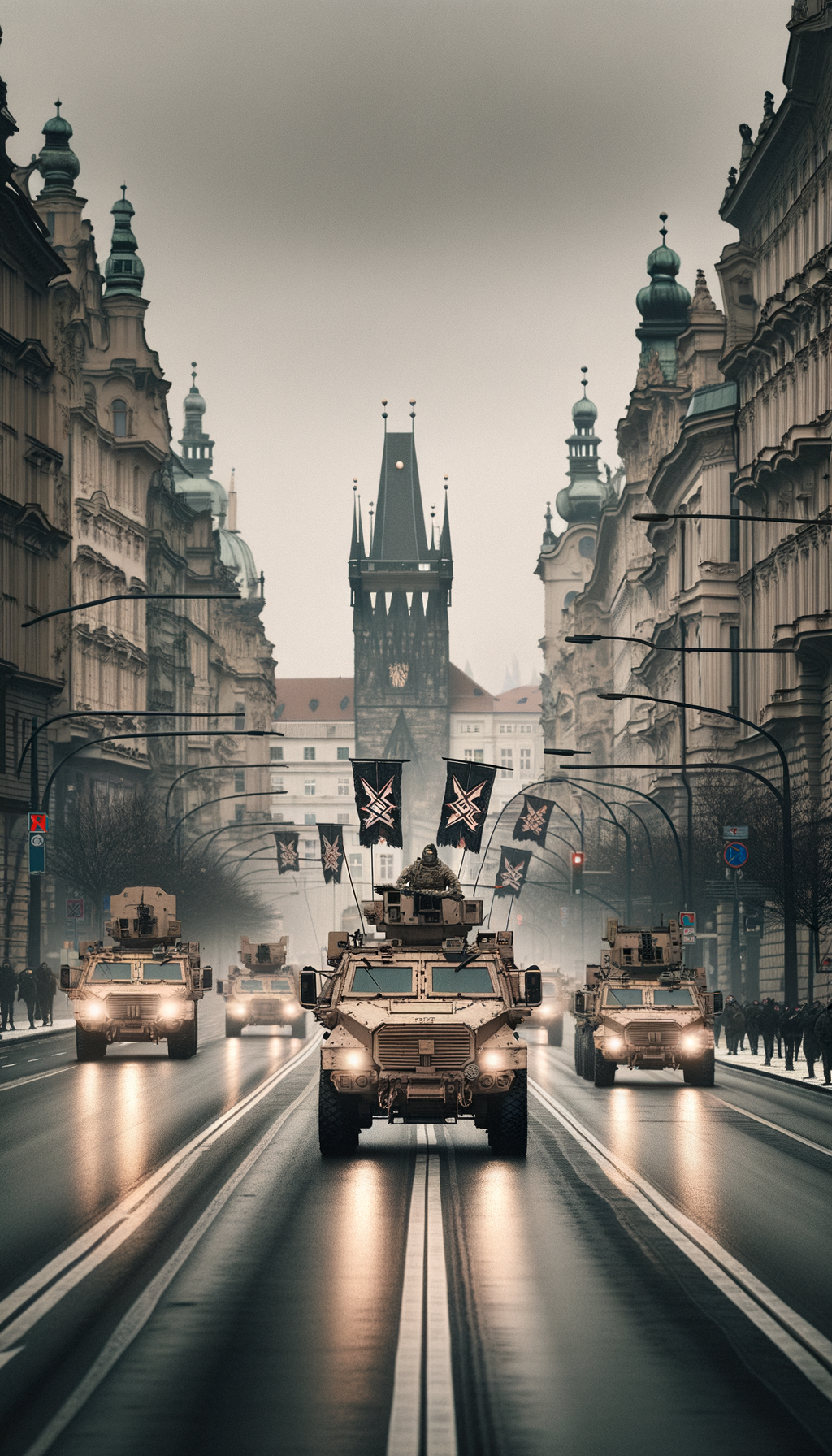Czechoslovakia – The Day Czechoslovakia Transformed – March 15, 1939
TLDR;
- Event: On March 15, 1939, Nazi Germany occupied Czechoslovakia without resistance, transforming the country’s political landscape overnight.
- Significance: This occupation marked the failure of the Munich Agreement and signaled the aggressive expansionist intentions of Adolf Hitler, leading to the creation of the Protectorate of Bohemia and Moravia and an independent Slovakia under German influence.
- Impact: The event was a psychological blow to Europe, highlighting the futility of appeasement and accelerating the path to World War II.
- Legacy: The occupation of Czechoslovakia was a critical turning point that influenced the shift in British and French policies towards Germany, setting the stage for global conflict.
–
Story
The chill of March 15, 1939, was pierced by the rumble of German tanks rolling into Prague. The streets, once bustling with the vibrant life of Czechoslovakia, now echoed with the heavy tread of Nazi boots. The world watched in silence as a nation was transformed under foreign control.

In the years leading up to this fateful day, Czechoslovakia had been a beacon of democracy in a Europe increasingly shadowed by totalitarian regimes. But the Munich Agreement of 1938 had already carved away its borders, leaving it vulnerable. The Sudetenland had been ceded to Germany, a move that was supposed to ensure ‘peace for our time,’ but instead, it only emboldened Adolf Hitler.
The occupation of March 15 was swift and decisive. Without a shot fired, German forces took control, and Czechoslovakia’s status as an independent state was fundamentally altered. The Czech lands (Bohemia and Moravia) became a German protectorate known as the Protectorate of Bohemia and Moravia, while Slovakia declared independence, becoming the Slovak Republic under heavy German influence. The world was stunned, yet the response was muted. This bold move by Hitler was a clear signal of his ambitions, a prelude to the global conflict that would soon erupt.
This occupation was not just a territorial gain; it was a psychological blow to Europe. It demonstrated the futility of appeasement and the relentless march of Nazi expansionism. The once-proud nation of Czechoslovakia was now divided, its people under the iron grip of foreign powers.
As the dust settled over Prague, the world stood on the brink of war, a war that would engulf nations and reshape the globe. The occupation of Czechoslovakia was a turning point, a harbinger of the storm to come, and a significant factor in the eventual shift in British and French policies towards Germany.
–
| Would a stronger international response have changed the course of history? |